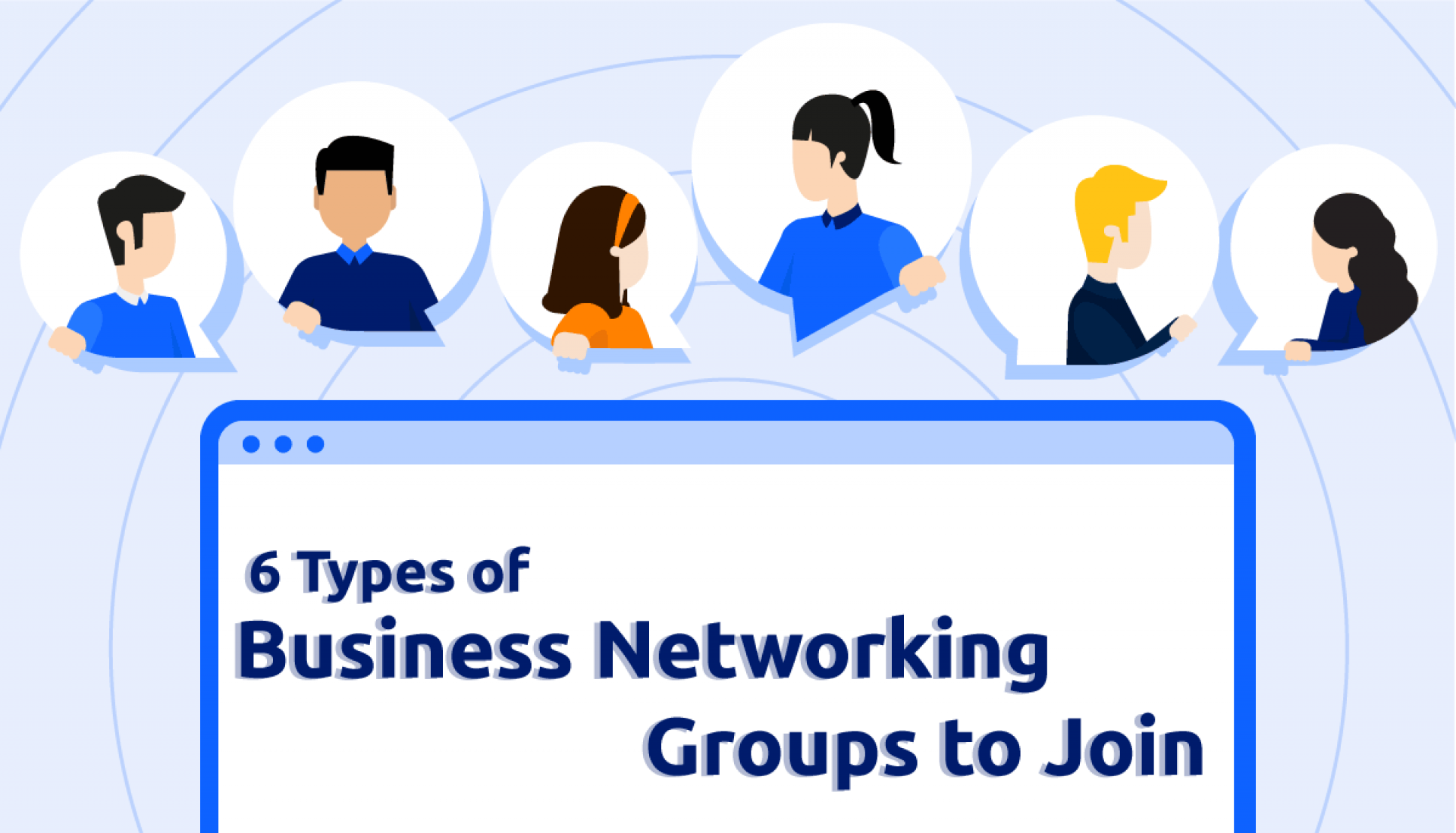
Business networking is the art of building a mutually beneficial relationship with other professionals. Having a strong network can be a key to business and career success.
However, connecting with others is not easy for everyone, especially if you don't know how to find the right prospects.
For this reason, we have put together the different types of professional networking groups to help you choose the best one for boosting your business or improving your career.
Quick Reads
- Social media network
- Casual contact network
- Strong contact network
- Community service club
- Leads group
- Professional association
1. Social media network
Social media is a useful tool when creating connections for business. It is a two-way communication channel that lets you establish rapport with your clients and prospects.
Building relationships and credibility is crucial to the process. It can be as simple as reading and replying to comments or acknowledging audience feedback.
Since it’s more personal, it helps you humanize a brand and make authentic relationships with the community.
You can quickly connect with your others through social media, especially when you tap them from personal accounts.
If you want to connect with your network, we recommend Twitter Advanced Search to generate the keywords they often use.
Start by identifying your prospects, whether they’re business owners, coaches, thought leaders or speakers.
After this, make use of the words mentioned in their bios, hashtags, and tweets. Once you have the keyword list, you can enter them in the search field and join global conversations.
2. Casual contact network
If you are looking for ways to meet many people in one day, casual networking is the best way to go. It typically holds an event for different professions with few restrictions.
These groups allow you to meet like-minded people in the industry and develop referral partnerships. Moreover, it is a good option if you’re looking to connect with business owners and other professionals in your community.
Members usually attend monthly mixers and mingle informally. Each event also invites guest speakers who can discuss relevant business topics like leadership, innovation, or technology.
Chamber of commerce usually holds regular business networking events. Joining one can gain you access to opportunities like building brand exposure and meeting potential clients.
Furthermore, it can also create a positive brand perception, as other organizations try to get to know your business more.
Besides being a good source of valuable contacts, it also fosters strong bonds as it can link you to other businesses that offer the services you might need.
If you are new to casual networking, you can opt to volunteer as a chamber ambassador first. This position gives you more exposure to networking events but with only a little commitment.
You can familiarize yourself with the group when you participate in committee discussions. If you want to establish a long-term professional network, it’s best to regularly attend meetings to strengthen business relationships.
3. Strong contact network
As you start to develop referral marketing campaigns, a strong contact network can provide opportunities targeted specifically to your goals.
There’s more exclusivity in it as it only allows one person per profession to join. It requires more membership commitment as a structured group. Thus, it increases loyalty and participation in return.
Once you’re part of this business network, be open to meeting members weekly over lunch or dinner. You can’t expect to meet hundreds of professionals in this type of group, but we advise you to prepare some business cards on hand to exchange.
This type of business networking group helps you get more quality and consistent referrals. It’s perfect for companies with a longer sales cycle like financial planning or bookkeeping.
4. Community service club

A community service club is a business networking group that focuses on providing charitable projects.
It’s a mission-driven organization that’s ideal for people who have a passion for service. While your main goal is to serve the community, building lasting business relationships with other members is also possible.
Plus, there’s a high possibility that you can also expose yourself to business opportunities through them.
The establishment of many popular community service clubs started in the 1900s. Lions Club International and Rotary International are some of the most well-known organizations.
Community service club activities can be teaching students, initiating education projects, or improving access to clean water for the community, which brings fun and fulfillment to members.
5. Leads group
A leads group is the largest segment of business networking that you can attend for the goal of giving and receiving referrals.
Meetings are structured for all members to give them a fair chance to participate. There’s open networking and it follows a designed meeting agenda that focuses on administrative matters, education, and feedback.
One of the primary benefits of this type of business networking is exclusivity. It’s usually limited to one profession per industry, giving a member a competitive edge over non-members.
That being said, you couldn’t be part of the professional network, not until a position intended for your industry has been vacant.
A member of a leads group can obtain massive amounts of referrals from other members through it. In fact, if each person has a network of about 300 people, it can pay off by leading to a great business deal.
One example of this business networking type is BNI. Thousands of businesses around the world utilize the networking organization to start their companies and obtain valuable sales referrals.
When you start to mingle with others through a leads group, keep in mind that it takes time to make meaningful connections and attain better results.
You need to engage with your network first to build trust, before you can expect to generate sales leads for your business.
6. Professional association

A professional association exposes you to different knowledge and skills that can benefit your business. It often holds conferences and events where you can learn from industry leaders, collaborate with other professionals, and share insights with a large group.
Most of its members are usually from a specific type of industry, such as finance, accounting, health, or engineering.
Association groups have created an associate member category that includes non-active members. It’s one way for participants to access potential vendors and generate income.
If you’re part of this professional network, you can seek ways to help others without the need to sell.
For example, when you’re with professional business coaches, you can share your knowledge and skills as an SEO consultant to improve a company website or increase its traffic.
You can start to make new connections by asking them if you can take charge of their social media pages.
If your professional association is interested in hosting a business networking event online, we recommend our Speed Networking solution.

With most events going digital amid the coronavirus pandemic, it’s an easy and safe way to virtually network and build meaningful professional relationships.
It’s an innovative tool that lets you join discussions in event rooms, community, and one-on-one meetings. What’s more, you can also accelerate industry contacts and exchange digital business cards quickly.



